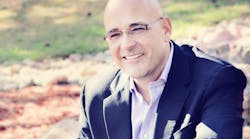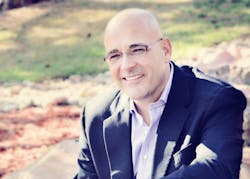Latest from Best Practices
Sponsored
Habit 1 of the ‘7 Habits’ that will change your contracting business forever
This is the second in a series of articles about how Dr. Stephen R. Covey’s landmark book, “The 7 Habits of Highly Effective People,” can be used to create powerful results in your contracting business.
According to Dr. Stephen R. Covey, ineffective people operate under the misguided assumption that their results in life and business are reflections of external circumstance — that somehow their success or failure is based on whether or not external conditions are favorable or unfavorable.
These so called “reactive” people see themselves at the mercy of factors beyond their control. If the economy is good, their business is good. If the economy is bad, their business is bad.
‘7 Habits’ that will change your contracting business forever
A more effective approach is to become a “proactive” person — a person who understands that real success in life and business is a reflection of changing ourselves rather than attempting to change the things beyond our control. As Viktor Frankl once said, “When we are no longer able to change a situation — we are challenged to change ourselves.”
Being proactive means understanding that we are in control of our own business outcomes and that external circumstances only dictate the decisions and choices we should make in response to external factors. In other words, the economy or competitive pressures don’t determine our success or failure. It is our response to the economy and competitive pressures that determines our success or failure. Better responses virtually guarantee better results, and better responses are 100% within our control.
When I opened my HVAC contracting company in 2004, I grew the company to more than $12,000,000 in sales in my first 36 months in business. Then came the worst economy since the Great Depression in 2008 and 2009. During those tough economic times my company continued to thrive and prosper, while many other companies struggled.
The fact that my company generated positive financial results during that period was not a reflection of the bad economy, it was a result of my decisions about what to do in response to the bad economy. I made good decisions about increasing marketing and sales activities while decreasing overhead, and consequently, we experienced financial success. Many of my competitors responded by conceding to the economy and cutting marketing and sales efforts.
Our success and their struggles were a direct result of how each company responded to the bad economy. We made better decisions and got better results.
It isn’t rocket science
Positive results in life and business are always a reflection of making good decisions in the face of bad problems. Successful contracting companies are not successful because they somehow avoid economic and competitive challenges. They are successful because of their responses to those challenges. Over time, better decisions guarantee better results.
In Habit One, Dr. Covey outlines several characteristics of proactive people. First of all, proactive people understand that between “stimulus and response” lies the “freedom to choose.”
In other words, following the moment that something happens around us, we have the opportunity to be deliberate about our response.Reactive people tend to respond too quickly with knee jerk reactions that can prove to be ineffective. Understanding that we have the freedom to choose means that we are responsible for our decisions.
Dr. Covey once illustrated this concept by writing that the word “responsibility” can be turned around to mean “the ability to respond.” In other words, we always have a choice to make better decisions, which beget better results.
Within that freedom to choose we are able to respond out of our awareness, our self-will and our imagination. We are not trapped into responding only out of our past experiences. We have a choice to tap into our creativity and make choices that are consistent with a more prosperous life and business. We have the ability to live out of our imaginations rather that our pasts.
In my first book, The Upside of Fear, I wrote about the liberation I felt when I learned I could live out of my imagination rather than my past. When I read those words, I was a 32-year-old high school drop-out and a three time loser living in a prison cell. Living out of my past was a sure fire way to relive my past bad choices and bad results. Living out of my imagination about a brighter future gave me hope and a means to move beyond my desperation.
Dr. Covey also identified the language associated with both reactive and proactive people. Reactive people tend to use words like “I can’t,” “I have to,” “They won’t let me,” “That won’t work” and other defeatist language. Proactive people tend to use language like “I get to,” “I can,” “I can make things work,” and other empowering statements.
Listen to the conversations around you. Listen to yourself. Your language says a lot about whether you are proactive (effective) or reactive (ineffective). It also says a lot about whether you will create your own wealth and prosperity in the contracting industry or whether your (and your family’s) wealth and prosperity will be left to external circumstances beyond your control.
Finally, Dr. Covey outlined where proactive and reactive people spend their time and energy. Imagine a large circle and within that circle are the things in life about which you are concerned: the economy, the weather, your competition and anything the concerns you. Now imagine at the center of that circle a much smaller circle and within that smaller circle are all the things over which you have control: your business, your training, your family.
The things in the larger circle are yours within your Circle of Concern, which contains all the things about which you are concerned, but over which you have no control. The things in the smaller circle are within your Circle of Influence, which contains all the things about which you are concerned and over which you have total control.
Ineffective people spend their time and energy in their Circle of Concern, wasting valuable time worrying about things they can’t change. Effective people spend their time focused improving things inside their Circle of Influence. Where their focus goes, there energy goes.
Again, listen to yourself and those around you. Are the conversations focused on things that you can influence or are the conversations little more than whining about things over which you have no control? The nature of our conversations reveal a lot about the nature of our character.
Success in the contracting business requires that we understand the need to be proactive: to understand we always have a choice and that better decisions in the space between stimulus and response guarantee better business outcomes. Success also requires monitoring our language and ensuring we are using empowering words, while keeping our focus on things we can influence.
Integrating the 7 Habits principles were vital for me when I started my company. In just 60 months I generated sales of $20,000,000 and earned a spot on Inc.magazine’s list of America’s fastest growing companies. I credit much of that business success to the concepts within the 7 Habits. Practice them in your contracting business and prepare yourself for success.
Weldon Long is the NY Times Bestselling Author of “The Power of Consistency” and one of the nation’s leading experts on building profitable contracting companies. His clients include Direct Energy/Clockwork Home Services, FedEx, Dex Media, Carrier/Bryant Corporations, Goodman Manufacturing, Rheem/Ruud and many of the best service contractors in the nation. Dr. Stephen R. Covey, Tom Hopkins, Tony Robbins and the Napoleon Hill Foundation have endorsed his work and books. Learn more at www.HVACSalesAcademy.com or www.WeldonLong.com.



